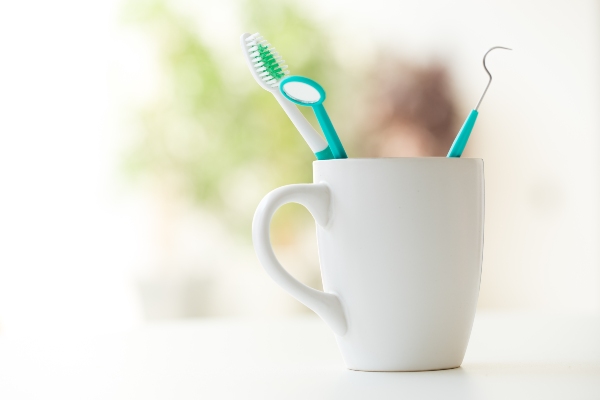 Maintaining routine dental care is important for oral and overall health, but many patients have questions about what it consists of beyond daily brushing and flossing. The right answers can help patients of any age understand the importance of providing optimum care for their teeth and the possible issues if they fail to follow through. Asking questions at the dentist can help fill knowledge gaps.
Maintaining routine dental care is important for oral and overall health, but many patients have questions about what it consists of beyond daily brushing and flossing. The right answers can help patients of any age understand the importance of providing optimum care for their teeth and the possible issues if they fail to follow through. Asking questions at the dentist can help fill knowledge gaps.
5 questions about routine dental care that everyone should know the answers to
Most patients have questions or concerns about proper oral hygiene and dental care. Unsurprisingly, dentists hear many of the same ones frequently. Here are several common questions about routine dental care.
1. Does daily brushing and flossing really matter?
The American Dental Association asserts that daily brushing and cleaning between teeth with floss or an interdental cleaner are two of the most important steps individuals can take to avoid tooth decay. By removing bacteria and food particles, brushing also helps reduce halitosis. For optimal results, brush for two minutes twice per day and invest in a new toothbrush every three to four months.
2. How does good oral hygiene impact overall health?
According to the Mayo Clinic, gum disease is linked to an increased risk of developing endocarditis, cardiovascular disease, pneumonia, and pregnancy complications. A 2018 study by Eke, Thornton-Evans, Wei, Borgnakke, Dye, and Genco reported that 43% of adults over 30 exhibit signs of gum disease. This statistic has profound implications stretching far beyond oral health.
3. Why are professional cleanings necessary?
Proper oral hygiene is important, but it is not the only aspect of routine dental care. Twice-yearly cleanings at a dental office also play a vital role in maintaining good oral health. During a cleaning, a hygenist removes plaque and tartar from tooth surfaces. A fluoride treatment may also be applied to help protect and strengthen tooth enamel.
4. What can patients expect at an annual exam?
A comprehensive annual exam with a dentist is an integral part of a dental care routine. In most cases, an exam includes dental X-rays, an assessment of gum health, and a check for abnormalities of the head, neck, and face. Dentists also look for any unusual wear patterns and can perform an oral cancer screening.
5. How do diet and nutrition impact dental care?
A healthy diet plays a significant role in routine dental care. Sugary foods, such as sodas and candy, generate an acidic environment in the mouth that degrades tooth enamel. It takes the mouth an hour to neutralize that acid. During that time, dental enamel is under attack. In addition to contributing to cavities, excess acid can also lead to sensitivity, which may cause patients to delay other dental care activities.
Conclusion
Good oral hygiene can minimize the risk of developing cavities, gum disease, and bad breath. Proper dental care includes brushing and flossing daily to remove food particles, clean teeth, and prevent plaque buildup. Annual exams that include a cancer screening are another crucial component. Exams are useful for spotting potential problems early so they can be addressed.
Request an appointment or call Winnetka Plaza Dental at 818-772-6222 for an appointment in our Winnetka office.
Related Posts
When it comes to health and wellness, prevention plays an integral role. In addition to making healthy lifestyle choices, practicing routine dental care is a vital step in maintaining a healthy mouth and body. There are numerous benefits for patients who commit to proper home and professional dental care.Routine dental care is necessary to maintain…
Good self-care habits ought to include time for routine dental care. From spending a few minutes each day on oral hygiene to visiting a general dentist throughout the year, taking care of the teeth and gums is an important part of personal health. Rather than leaving oral health to chance, implementing preventative dental care practices…
Daily oral hygiene habits should not be considered a substitute for the routine dental care that occurs during a dental checkup and cleaning. There are oral health concerns that a dentist will be able to proactively address during an office visit, but the equipment and tools used to care for both teeth and gums are…
